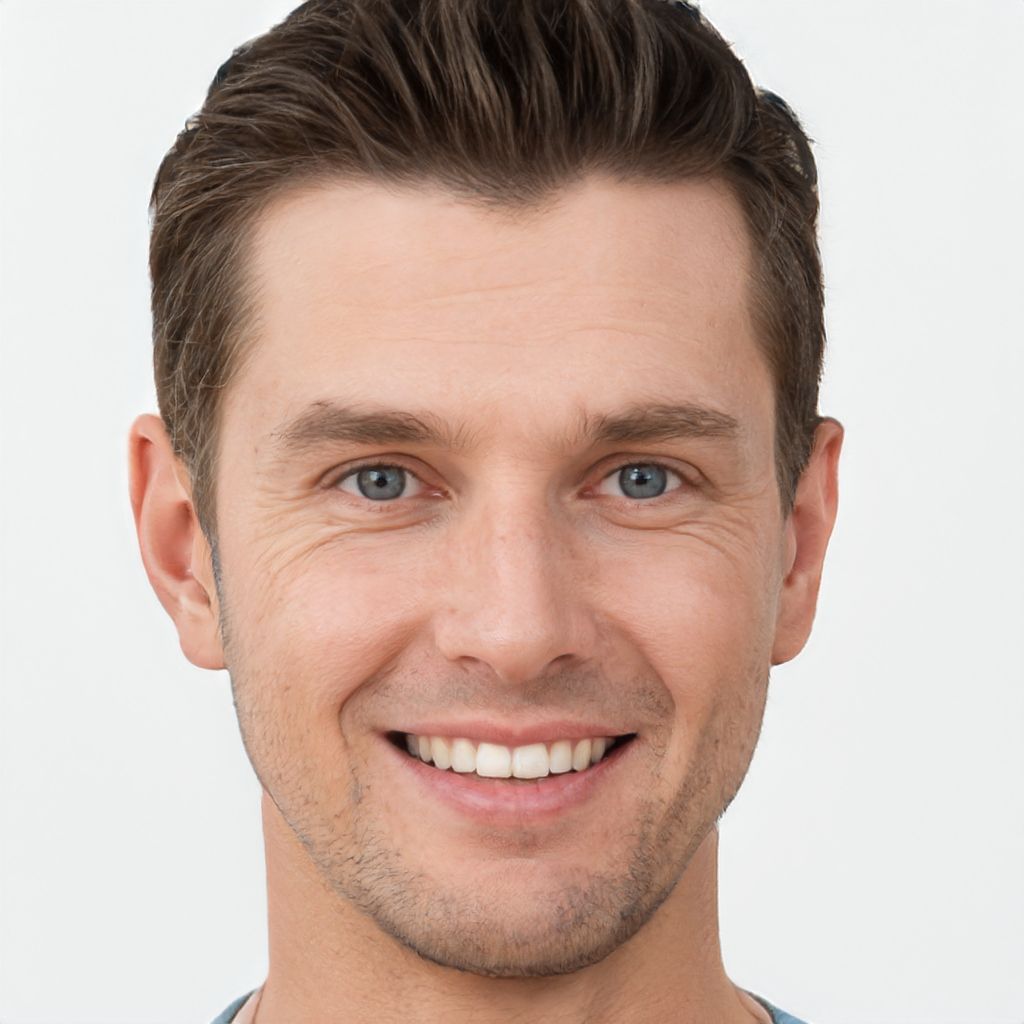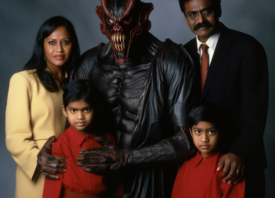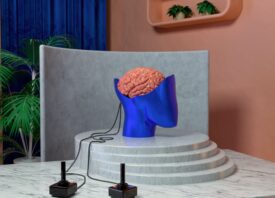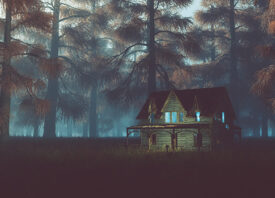Search this site
Will Photographers Be Replaced By AI?

In recent years, artificial intelligence has revolutionized the photo industry. Neutral networks and machine learning have made complex editing actions available with a few clicks, and these days, brands can even download and use royalty-free stock “photos” of computer-generated people.

For the most part, AI has been touted as the next great wave in photo history, and it might be–but some experts have grown concerned about the implications of this trend in the near and distant future. If AI can make photographers’ jobs faster and more convenient, could it eventually replace them?
“I think, by far, the biggest misconception about AI is that it will be just another tool that will make photographer’s lives easier but won’t otherwise won’t harm their prospects for future employment,” Greg Scoblete, a preeminent technology writer and contributor to PDN Magazine, tells us.
“Most of the commercialized AI products — used in software like Adobe, Skylum or Topaz — really are just that, effective tools. But the potential for AI is much broader. ‘Intelligence’ isn’t a tool, it’s a creative force. Unleashing it on a creative industry is going to have profound consequences for those who previously thought creativity was the sole province of human ingenuity.”
We interviewed Scoblete about the future of AI in photography, and he shared his predictions for the field.

Have you noticed that AI is something photographers are generally concerned about? If so, is their fear warranted?
“I don’t believe there’s much concern at all, which is really curious given how much the topic of AI-driven unemployment has been bandied about more generally. I don’t quite understand why this is, either. It could be a case of whistling past the graveyard or, more realistically, the fact that most photographers have a lot more pressing concerns to grapple with than tech trends that may or may not materialize in the coming years.
“To the extent that photographers are concerned, I believe these fears are absolutely warranted, with a few caveats. I don’t think it’s realistic to expect AI to replace all photographic disciplines. What we’re likely to see instead is AI replace some almost completely (stock photography, product photography, food photography are most at risk, I think) and as it does that, it will put immense downward price pressure on other disciplines that are more insulated from this kind of disruption.
“I think AI will also put a lot of pressure on retouchers, editors, and digital techs since gains in AI will transform painstaking and detailed tasks into push-button processes.
“I think a related threat is not AI replacing photographers so much as redefining photography jobs–you may still need people to pick up and move a camera into place, but all of the technical and creative elements that flow from that point will be handled by a machine.
“The upshot of that development is that the job of ‘picking up the camera and positioning it’ may still be called ‘photographer,’ but the picker-upper is going to command a lot less money than what photographers currently make–which, my photographer friends never cease telling me, is not enough to begin with!”

How do you see AI disrupting and reshaping creative industries like photography?
“We like to treat ‘human creativity’ as if it’s some kind of magic that just happens. But human creativity is really just the interplay of an environment, memory, and some chemical and electronic signals. There’s really no reason, in principle, why this creativity has to be confined to brains and not silicon.
“And the minute this silicon creativity is really unleashed, it’s going to completely upend the economics of a lot of creative industries. Consider all the examples of AI art that can, today, fool humans into thinking it was made by a human and not a machine. This has happened with musical compositions and will, inevitably, happen with photographs and even full-length motion pictures.
“Now, those working in machine learning and AI would likely object and say that software can’t really be creative in the way that humans are. Machines may be able to output creative products, but they do so according to rules and algorithms and not experience and emotion—the fuel of so much human creativity.
“But I think that’s ultimately a distinction without a difference. Most human creativity is engaged with commercial processes–it’s a business. And it’s in a business’s interest to maximize efficiency and lower costs. One proven way to reduce cost is to replace humans with machines or software. The minute AI is as good as your average screenwriter, director, DP, photographer, etc.—it won’t matter to those businesses who formerly cut checks to human creatives that the machine followed an algorithm and not its heart.
“And once this dynamic sets in, creatives are going to have to work for less and/or figure out a way to differentiate their work product from the machine. In other words, the same dynamic that pushes Amazon to use robots in its warehouses and drones as its delivery personnel will push the bankrollers of today’s creative talent to use software and AI tools wherever possible and to invest in making those tools better.”

What’s the most concerning development you’ve seen recently in AI for photographers and photography?
“I think concerning developments fall into two buckets: concerning for the future of photography as a profession and concerning for the future of society as a whole. In the first bucket, I think a lot of the work done by NVIDIA and Microsoft (and Google, to a lesser extent) around generating photo-realistic images from scratch point in a fairly straight line to a future where this technology can easily generate bespoke stock and product imagery on demand, sidelining photographers in the process. Fine art is trickier–people have paid for AI-generated images already, but will people accept more AI art in galleries? I don’t know.
“As for society as a whole, the ability to generate photo-realistic images and videos is already starting to poison our information bloodstream with fake content. This isn’t the fault of AI developers alone–the platforms that are overly permissive of misinformation and a public that gets its news from social media are also at fault–but we’re staring into a really dark abyss of misinformation and deception as these tools grow more powerful and easier to use.”
How do you think AI could potentially shake up the documentary/photojournalistic field, in particular?
“I think there’s real danger is the proliferation of AI-generated ‘deep fakes’ whose goal is to deceive the public. We already have a sizable audience that’s been steadily conditioned to ignore news they don’t like, making them receptive targets for more audacious fakes like the kind that have popped up on Reddit.
“There’s going to be a counter-effort against manipulated photos and videos, which will also involve AI technologies, so I think we’re destined to be locked in an arms race to counter this kind of photo-realistic misinformation for the foreseeable future. But I do think that AI is kind of the second-order concern here–the bigger issues, to me, are the social media platforms themselves and a public that’s not discerning enough about its information diet.”

On the other end of the spectrum, what’s the most exciting development you’ve seen recently in the AI/photography field? Anything you think could change/shake up the industry for the better?
“If I’m a bit pessimistic about the trends for the professional field, I think AI will be absolutely wonderful for consumers. Their smartphone cameras, already pretty darn good, will only get better. What’s more, thanks to machine vision, our huge photo libraries can be automatically organized and cataloged–and later searched–with ease.
“These organizational benefits will also be a huge help to pros–we see this already in things like Lightroom auto-tagging. I expect a lot of the grunt work around organizing and cataloging images will be alleviated by AI. Another possibility (and something I sketched out in greater length here) is the ability for AI to end the megapixel race for good.”

When people, myself included, ask you about the role of AI in the future of photography, is there a question that we tend to overlook or miss? If so, what is it?
“One thing that I think is important to keep in mind is how much AI research and science is just sitting out there in public. A lot of the major breakthroughs are published in open journals, which means any company (or individual) can take the code and make their own commercial variants of the technology.
“This research is already trickling into consumer software products and will undoubtedly make its way into a lot more. I think that’s an important and underappreciated development. The flip side is that this is also how the code for deep fakes fell into the hands of bad actors. This stuff isn’t proprietary and not protected by an army of IP lawyers ready to sue at a moment’s notice. That means that powerful image-making technology is going to be available to a lot of people.”
Follow Greg Scoblete on Twitter at @GregScoblete.


